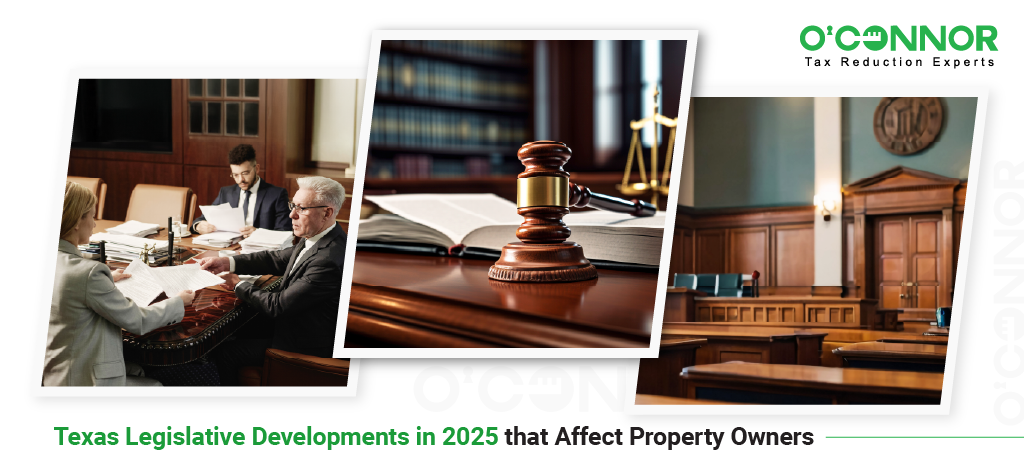
In 2025, several legislative measures were introduced that could impact Texas property taxes and property owners in 2026, depending on voter approval in the November election. The legislative developments could positively impact property owners and taxing entities in 2026 by providing tax relief and large potential savings if passed by voters. Texas ranks among the states with the highest in property taxes in the nation. With legislative developments that can positively bring tax relief being passed for 2026, property owners can have hope for the future. As elections approach this fall, it is crucial for voters to have a clear understanding of the different legislative developments before casting their ballots.
Texas Senate Bill 4 (SB 4) Homestead Exemption Increase
The Texas Senate Bill 4 (SB 4), also known as the Homestead Exemption Increase, was introduced on February 6, 2025. If approved in November, SB 4 will take effect in 2026 and would raise the homestead exemption for school district taxes from $100,000 to $140,000 of a home’s assessed market value. For homeowners, the taxable value would decrease; however, individual savings will depend on the value of the property and local tax rates.
House Bill 9 (HB 9) Business Personal Property Exemption
House Bill 9 (HB 9) Business Personal Property Exemption was introduced February 19, 2025. If passed, this exemption would increase to $125,000 starting in 2026. HB 9 would broaden the exemption for tangible personal property that produces income from $2,500 to $125,000. If HB 9 is approved in November, HB 9 will be effective starting January 1, 2026. This bill already applies provisionally in the 2025 tax year through adjusted tax rate calculations and preliminary tax bills.
Texas Senate Bill 1502 (SB 1502) Disaster-Related Tax Rate Protection
On February 20, 2025, Texas Senate Bill 1502 (SB 1502) was introduced and, if passed in November, it would prohibit school districts from raising property taxes in the years following a disaster. This legislative development would provide homeowners with predictability because, with fewer surprise tax increases, homeowners can better plan their finances. This is especially important when these homeowners may have experienced damage themselves from the same disaster, making any increase an additional stress on resources that are already stretched. Further, if school districts want to raise taxes following a disaster passed voter approval, it would hold a Tax Ratification Election, meaning it would give property owners a say in the decision.
Senate Bill 23 (SB 23) Enhanced Exemption for Elderly/Disabled Homeowners
On April 15, 2025, Senate Bill 23 (SB 23) was introduced, and it would increase the additional homestead exemption for homeowners aged 65 or older or those who are disabled from $10,000 to $60,000. Combined with other exemptions, such as the general homestead exemption, eligible homeowners could receive up to $200,000 in total exemption value. In total, savings could be over $950 a year per household. Apart from the obvious large savings, this senate bill could also help more Texans be free from school taxes, help those with fixed incomes, and provide long-term protection.
Governor Abbott’s Caps on Local Spending Proposal
On July 9, 2025, Governor Abbott announced his proposal to cap local government spending due to increases in population growth plus inflation as part of his legislative session on property tax and budgeting. This proposal is pushing to cap how much local governments can increase spending each year based on inflation and population growth and is intended to rein in tax pressures linked to unchecked local spending. The governor’s proposal is still moving through the legislative process and, as of now, specific legislation on his proposal has not been introduced. If passed, this cap could slow the growth of taxes, provide predictability for homeowners, and prevent tax burden recycling, which ensures that local governments can’t immediately offset state relief with their own hikes.
Impact on Taxpayers
With the many different legislative developments concerning property taxes, there is the potential for large savings for homeowners if voters approve the constitutional changes coming up in November. . Property owners within school districts would gain protection from possible tax hikes in case a disaster strikes and not to mention the increase in exemptions for homeowners who qualify. Based on all the legislative developments, it appears that the priority for the constitutional changes is tax relief, which benefits property owners greatly. With all the various legislative developments, taxpayers can confidently vote this November knowing that great changes are on the horizon.
How Can O’Connor Help
Since 1974, O’Connor has been one of the largest property tax consulting firms in the U.S. With a team of over 1,000 professionals, O’Connor provides residential and commercial property tax reduction services in Texas and many other states. Using O’Connor’s extensive proprietary databases, we serve a diverse clientele, including property owners of residential, commercial, and industrial properties. Our databases fuel our ability to appeal tax assessments with in-depth market analysis, and our appraisal techniques give us an advantage in achieving a reduction for clients.
Our Property Tax Protection Program™ is free to enroll and only takes 2 to 3 minutes to sign up. As part of our program, we tailor our appraisal strategies for each individual case to secure a fair reduction. Our friendly staff works hard to help our clients achieve a reduction that is below the appraisal review board (ARB) level.

